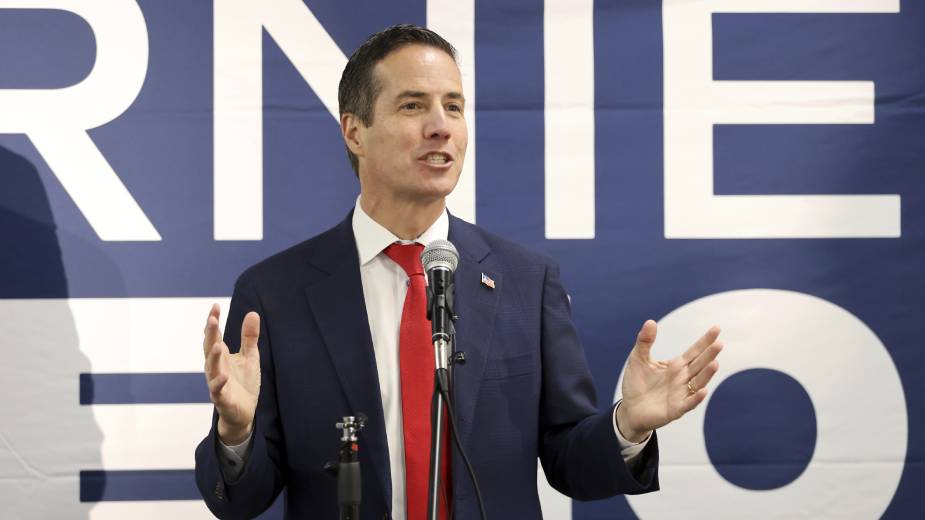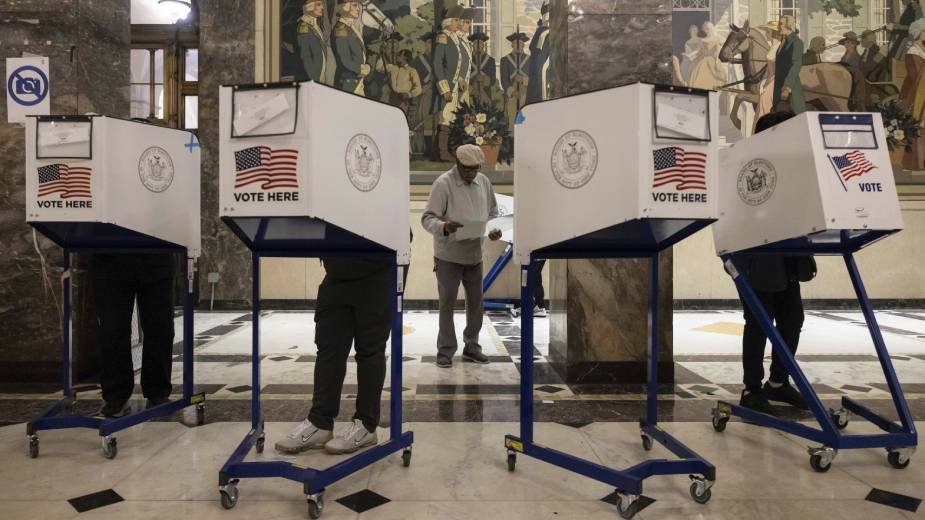Ryan Blasts Trans-Pacific Trade Pact, Fast-Track
YOUNGSTOWN, Ohio – President Obama should press congressional supporters of a Trans-Pacific Partnership trade agreement to send him a “robust” transportation bill first, U.S. Rep. Tim Ryan said Monday. The president is in a “unique position,” Ryan, D-13 Ohio, said, to tell Congress that he until he gets a transportation bill, which the U.S. Chamber of Commerce and major labor unions agree the country needs, he doesn’t “even want to talk about a trade agreement.”
But even if such a compromise were arranged, Ryan said it’s unlikely he would support trade agreement.
Flanked by representatives of the Alliance for American Manufacturing for a press conference at the Youngstown Business Incubator, Ryan spoke out against giving the president fast-track authority to negotiate trade deals like the proposed TPP agreement. Fast-track authority would permit the president to negotiate deals and present them to Congress for an up-or-down vote, without the opportunity for amendments. “It shifts way too much power to the executive branch,” he said.
Ryan recited multiple trade agreements and the contrast between what was promised and their actual results. The North American Free Trade Agreement, which was to create 200,000 U.S. jobs, instead resulted in a net loss of 700,000 jobs here, he said. More recently, the 2012 U.S.-Korea trade pact was to lead to 70,000 new jobs from exported goods alone but instead the United States lost nearly 60,000 jobs to Korea in just two years, he said.
Additionally, before NAFTA, the United States enjoyed a $1.6 billion trade surplus with Mexico; by 1995, the year after the agreement went into effect, “we had a deficit of $16.8 billion,” and by 2013 that deficit had grown to $96 billion, Ryan said.
“We’ve been down this road before where we’ve been told these trade agreements, the way they are currently written, are going to create jobs in the United States. Our experience is otherwise,” he said.
The president says he “wants to sign a 21st century trade deal, a gold standard for trade deals in the future, but he hasn’t included one of the biggest barriers of the 21st century, which is currency manipulation,” said Ken Poweski, AAM field coordinator for Ohio.
“It’s cheating when countries like Japan drive down the value of their currency to gain advantage on us,” Poweski continued. “That’s not fair trade. America has got to level the playing field for its manufacturers and its workers because we cannot compete with a game that is rigged.”
Other areas in which the United States is put at a competitive disadvantage include labor standards — several nations involved in the current talks use child labor and forced labor, for example — as well as environmental standards, Ryan said.
“I want to be for free trade agreements. I want to be for fair trade agreements. But you must have rules that allow us to trade with a country that has the same worker protections, the same environmental protections and the same other standards that we have in place,” he said. “Until that happens, it’s going to be very difficult for me to support this, whether there is a Democratic president or a Republican president.”
The White House defended the Obama administration’s position on trade, pointing out that since 2009 U.S. exports have risen by $694 billion, providing a third of America’s economic growth, and the count of jobs supported by exports has grown by 1.3 million. The export share of gross domestic product, at 13.5%, is at the highest level ever measured, according to an administration fact sheet emailed Monday.
“The Obama administration is committed to a trade policy that provides new opportunities for workers and that supports economic growth by opening markets, enforcing our agreements and leveling the playing field for our workers,” the administration said. The Trans-Pacific Partnership, Transatlantic Trade and Investment Partnership and other deals “offer new opportunities to advance this agenda, consistent with American interests and American values, including putting labor and environmental protections at the core of trade policy and protecting and promoting innovation.”
U.S. Rep. Bill Johnson, R-6 Ohio, said he hasn’t seen any draft legislation that would allow him to weigh the merits of a trade promotion authority bill but expressed his support for “robust trade policies that create jobs here in America,” provided that America’s trading partners play by the rules and practice fair trade policies.
“It’s imperative that we do everything we can to help workers and businesses succeed — and, that means opening up global markets for American-made products, not closing ourselves off from the rest of the world,” Johnson said.
“It’s important to note that any agreement negotiated under TPA would still be subject to an up-or-down vote in both the House and Senate in order to go into effect. The goal must be to get the best deal for American workers out of any agreement with our foreign trading partners,” he said.
Pictured: U.S. Rep. Tim Ryan meets with field coordinators from the Alliance for American Manufacturing: Hank Sadinski, left, and Ken Poweski.
Copyright 2024 The Business Journal, Youngstown, Ohio.



